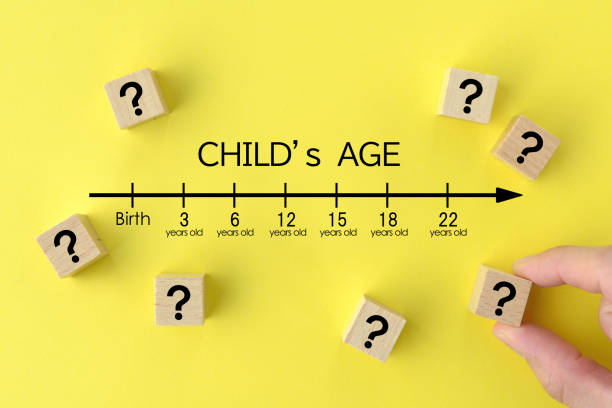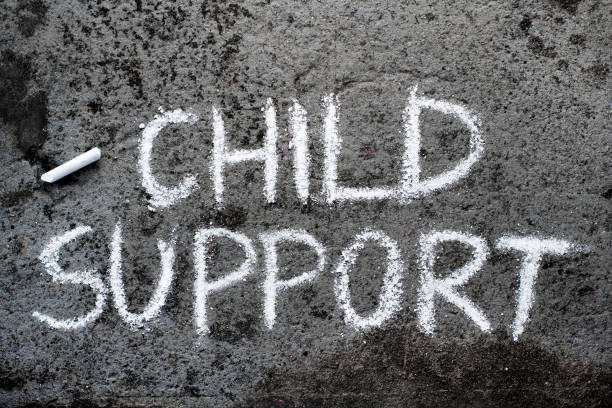Parties who have recently divorced or separated often pose the question ‘are child support payments taxable.’ When we discuss the question are child support payments taxable, we’re looking at whether child support income is taxable.
Let’s first understand what is child support payment. Child support payments are ongoing payments that one parent makes to the other parent (former spouse) after a divorce or separation.
Child support is also known as child maintenance. These payments are made to financially support the child after a separation or divorce. This is important to provide financial stability to the child.
These payments can either be made as a lump sum payment, or parties can opt to arrange periodic payments that will be made from time to time.
Of the two parties who have divorced or separated, the party receiving payments from their former spouse will receive child support income. The questions of are child support payments taxable relates to child support income.
Therefore, most payees who receive child support payments often ask us ‘are child support payments taxable.’ This article aims to answer the question by exploring certain key aspects relevant to it.
But before we delve into the topics in greater detail, the simple answer to the question are child support payments taxable is no. Payees are not required to pay tax on any child support payments that they receive. Let’s discuss below.
What Does Taxable Income Mean?
As the name suggests, taxable income is the income that people need to pay tax for. But what does this comprise? Taxable income comprises of income that an individual owns from wages, businesses, investments and other taxable government payments.
The formula for calculating taxable income is:
Assessable income – Allowable Deductions = Taxable income.
Parties need to declare assessable income, i.e., income that you pay tax on. This can include:
- Salary and wages;
- Allowances;
- Tips, gratuities or other payments for services;
- Bonuses, and overtime payments;
- Pension;
- Rent;
- Investment income and dividends;
- Interest from bank accounts;
- Commissions
Sometimes you can claim deductions for all expenses. These deductions reduce the assessable income amount (as seen in the formula above).
Now that we have understood what taxable income is, the important question is, are child support payments taxable?

Are Child Support Payments Taxable?
We’ve answered the question above by stating that child support payments are not taxable. But, why is this so? This is because the payees receiving child support are not receiving the payment as part of their “earned income.”
Moreover, child support payments are private and domestic in nature. The Australian Taxation Office (ATO) does not categorise these payments as “income” payments.
Similarly, spousal support payments i.e. the payment made from one spouse to the other following the breakdown of relationship is also not taxable. ATO does not categorise spousal maintenance as taxable income either.
How Is Child Support Calculated?
Since we have answered the question ‘are child support payments taxable’ let’s look at other important topics related to child support. For instance, how is child support calculated?
The Department of Human Services (DHS), or Services Australia calculates child support payments for given parties. The DHS will assess various factors to determine which parent needs to make payments, and which parent will receive child support payments.
Primarily, the DHS considers factors like both parties’ incomes, their care contributions and the needs of the child. If the parent receiving payments feels like there should be some adjustments to the payments, they can contact the DHS and make applications accordingly.
Broadly, DHS uses the factors below to determine amount of child support for a child:
- Income of each parent;
- Age of the child or children;
- Amount of time each parent spends to take care of the child;
- The number of children the paying parent and receiving parent have.
Importantly, like it is the case with most family law matters, parents are allowed to come up with child support agreements themselves. If they have had an amicable split, and are willing to negotiate and discuss such topics, they can reach mutual agreements.
In this case, they will not need the help of DHS. They can themselves decide who will make the payments, how much the paying party will pay for child support, and how often he/she will make the payments.
Moreover, parties can make Binding Child Support Agreements or Limited Child Support Agreements. For such agreements, both parties will need independent legal advice.

What Does Child Support Cover?
The parent receiving child support payments has to utilise those payments to care for the child. There are a variety of things that child support can cover. This includes:
- Clothes
- Food
- School fees and costs
- Other educational costs
- Medical expenses
- Other healthcare costs
- Extra-curricular activities; and
- Housing.
Child support can be paid until the child turns 18 years of age. In other words, child support can be paid until the child finishes year 12, whichever is the later date. The Child Support Assessment Act (1989) regulates these payments.
How Can Our Lawyers Help?
At JB Solicitors, we have a team of highly-qualified family lawyers who have a wealth of experience under their belt. Our lawyers have the knowledge and experience to provide tailored-advice to each client for their family law matters. We are a community-oriented team of professionals who are passionate about family law.
Issues such as child support payments, spousal maintenance, divorce and separation can be stressful. Each party wants to finalise such matters as soon as possible. Therefore, it is important to get advice from lawyers who you can trust.
Our team values transparency, and hence offers fixed-fees for certain services. This allows each party to check legal costs before proceeding with our services. Moreover, we provide cost agreements to ensure transparency throughout all processes.
If you have more questions like ‘are child support payments taxable’, please do not hesitate to contact our lawyers. You can call our office on 1300 287 911.
Or, contact us through our website.
